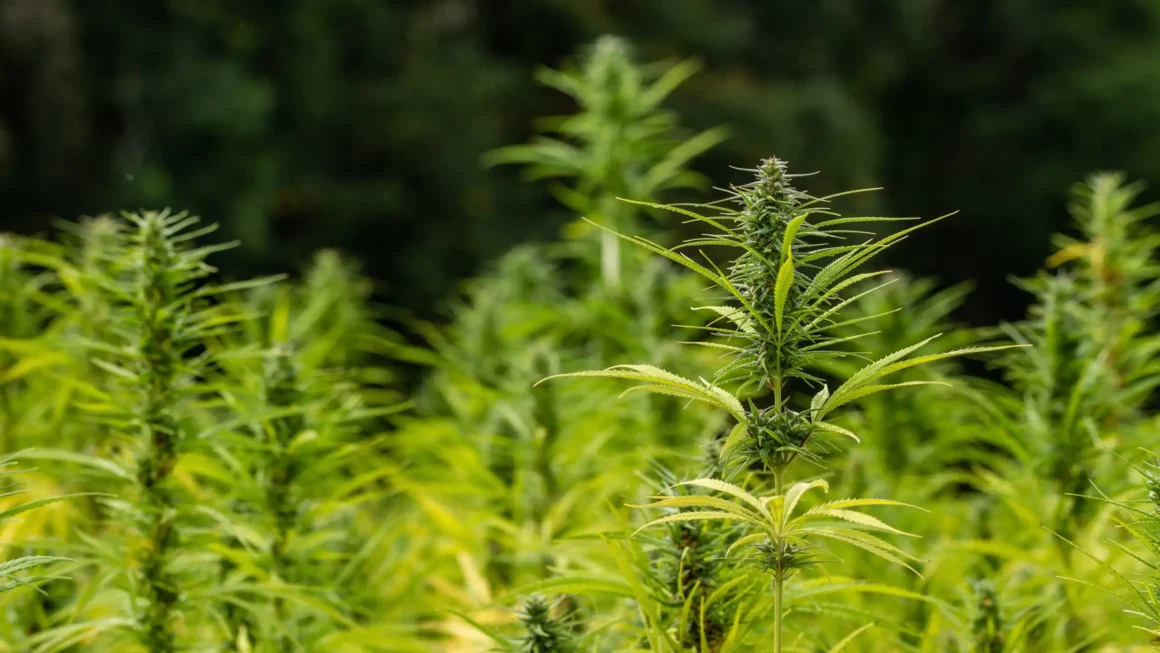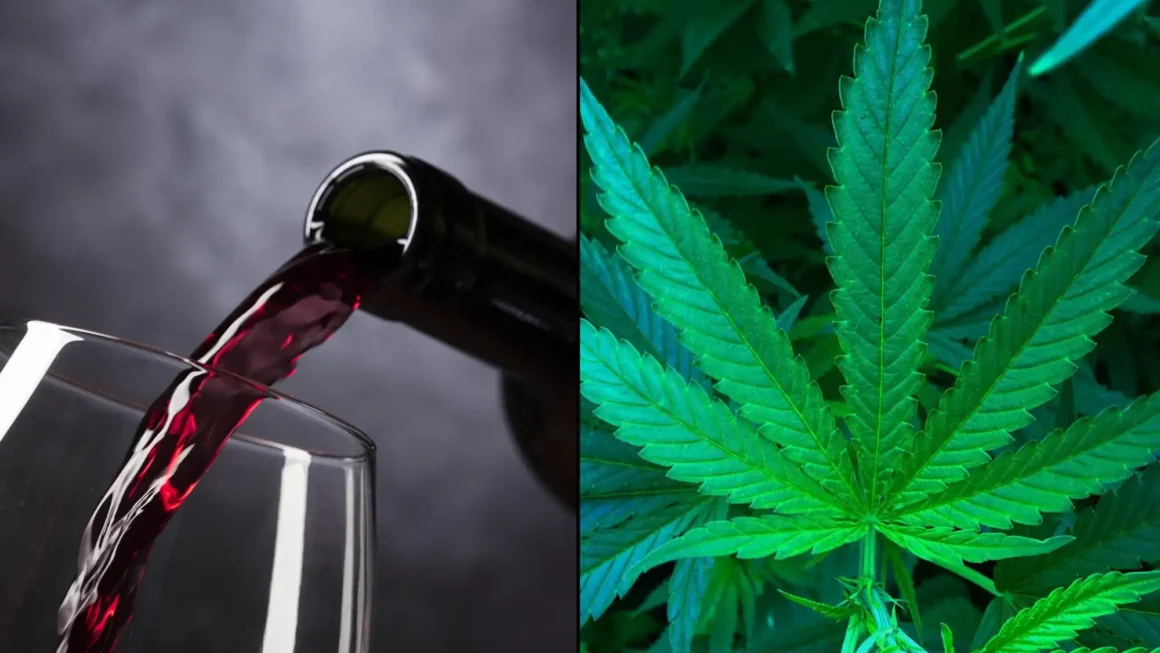Bipartisan congressional lawmakers have filed a new bill to regulate consumable hemp products—offering a potential alternative to the outright THC ban that was included in a spending bill President Donald Trump signed late last year.
House Energy and Commerce Subcommittee on Health Chairman Morgan Griffith (R-VA) and Rep. Marc Veasey (D-TX) introduced the Hemp Enforcement, Modernization, and Protection (HEMP) Act on Thursday as the future of the market sits in limbo.
The proposal would affirmatively allow the sale of consumable hemp products to adults 21 and older. That includes edibles, beverages and inhalable items. Certain provisions have been amended since the GOP sponsor first circulated a discussion draft of the legislation in August.
“Despite raising repeated concerns about the ongoing confusion regarding the safety, consumption and sale of CBD-containing products until a discussion draft of this bill was circulated, I believe we have yet to see meaningful progress at the federal level,” Griffith said in a press release.
“I am proud to lead the effort in the House along with Representative Veasey to present a path forward for the federal regulation of CBD products,” he said. “After discussions with stakeholders, federal officials and other relevant authorities, I believe the HEMP Act is a positive step forward to deliver federal clarity to the American hemp landscape, protecting consumers and providing a stable marketplace for legitimate producers.”
“I look forward to working with my colleagues, the Trump Administration and the [Food and Drug Administration, or FDA] to perfect this bill,” the congressman said.
If the legislation is enacted, there would be various regulatory restrictions for the market. For example, packaging couldn’t appeal to youth and would need to be tamper-proof. It would also need to list all cannabinoids present and include QR code linking to a certificate of analysis.
Hemp product makers would be prohibited from adding substances like alcohol, caffeine, tobacco, nicotine, melatonin or others “with effects that could interact with cannabinoids or enhance or alter their effects.”
There would also be manufacturing and testing requirements, and hemp businesses would need to register their facilities.
Additionally, there are provisions mandating the establishment of a total cannabinoid cap on hemp products. The U.S. Department of Health and Human Services (HHS) would be charged with proposing cannabinoid limits within 60 days of enactment.
If those rules aren’t implemented within three years of enactment, these default thresholds would be set:
- Oral hemp products with non-intoxicating cannabinoids: Up to 10mg/serving and 50mg/package.
- Inhalable products: Up to 100mg/serving and 500mg/package.
- Topical products: Up to 100mg/serving and 500mg/package.
- Intoxicating cannabinoid products (e.g. items containing THC): Up to 5mg/serving and 30mg/package.
That final THC limit on intoxicating cannabinoid products was significantly increased compared to the earlier discussion draft, but some stakeholders say the per package restriction is still too small—even if they support the thrust of the revised legislation.
Another change in the latest version would give FDA the authority to mandate cannabinoid product recalls. It would further establish a Cannabinoid Hemp Products Advisory Committee to provide recommendations on THC thresholds.
Jonathan Miller, general counsel at the U.S. Hemp Roundtable, told Marijuana Moment that the organization is “deeply grateful” to Griffith “for his introduction of critical legislation to robustly regulate hemp products.”
“We have been very impressed with the congressman’s continuing willingness to listen to the input of hemp farmers and businesses, and his openness to the need for substantive improvements to the bill before it is formally considered,” he said. “While this first step is very important, there is much work yet to be done before final passage.”
Under the proposal, HHS would also be tasked with creating and maintaining a list of known cannabinoids, which would have to be published within one year of enactment.
The measure would also amend the Food Drug & Cosmetic Act (FDCA) to create a new chapter for cannabinoid hemp products, and a new Cannabinoid Hemp Products Advisory Committee would be established.
“Over the past six months, American farmers, veterans, consumers, and the broader domestic supply chain have been put at risk—not by science, but by misguided rhetoric, fear-based narratives, and competing interests that failed to serve the public good,” Edibles.com Executive Vice President Thomas Winstanley said in a press release. “This legislation marks a meaningful course correction.”
“At a time when consensus in Washington is rare, the bipartisan support behind this effort speaks volumes,” he said. “It reflects both the importance of these products to millions of Americans and a shared recognition that smart, balanced regulation can protect public health while strengthening domestic agriculture and economic opportunity.”
Meanwhile, alcohol retailers recently came together to encourage Congress to delay the enactment of the law Trump signed to federally recriminalize hemp-derived THC beverages and other products.
The coalition is calling on lawmakers to pass recently introduced legislation, the Hemp Planting Predictability Act, that would give the hemp industry two more years before a federal ban on THC products would take effect—which stakeholders hope will better position them to negotiate a broader regulatory compromise.
House Oversight and Government Reform Committee Chairman James Comer (R-KY), who is cosponsoring the proposal, appeared at a press conference last week alongside farmers who are concerned about the looming federal hemp ban’s impact on their businesses.
For what it’s worth, four in five marijuana consumers say they oppose the recriminalization of hemp THC products under the spending bill Trump signed in November. However, it should be noted that that poll was conducted weeks before he issued a cannabis rescheduling order and took steps to protect access to full-spectrum CBD.
Trump signed an executive order last month directing the attorney general to complete the process of moving marijuana from Schedule I to Schedule III of the Controlled Substances Act (CSA).
Part of that announcement also hold implications for the forthcoming hemp law. The president’s order also urged Congress to examine updating the definition of hemp to ensure that full-spectrum CBD is accessible to patients.
A further redefinition of hemp would be part of a novel proposal to allow Medicare recipients to access non-intoxicating CBD that’d be covered under the federal health care plan.
To effectuate that, the Centers for Medicare & Medicaid Services (CMS) will be announcing “a model that will allow a number of CMS beneficiaries to benefit from receiving CBD under doctor recommendation at no cost,” a White House official said during a briefing that Marijuana Moment first reported leaked details from ahead of the signing event.
Trump seemed endorse a more flexible CBD policy last summer when he shared a video calling for that specific reform while promoting the health benefits of cannabidiol, particularly for seniors.
Meanwhile, a separate recently filed Republican-led congressional bill would stop the implementation of the hemp ban under the enacted appropriations legislation.
Hemp businesses and industry groups have warned about the potential ramifications of the ban, but despite his support for states’ rights for cannabis and a recent social media post touting the benefits of CBD, Trump signed the underlying spending measure into law without acknowledging the hemp provisions.
GOP political operative Roger Stone said recently that Trump was effectively “forced” by Republican lawmakers to sign the spending bill with the hemp THC ban language.
However, a White House spokesperson said prior to the bill signing that Trump specifically supported the prohibition language.
The Democratic governor of Kentucky said that the hemp industry is an “important” part of the economy that deserves to be regulated at the state level—rather than federally prohibited, as Congress has moved to do.
Also, a leading veterans organization is warning congressional leaders that the newly approved blanket ban on consumable hemp products could inadvertently “slam the door shut” on critical research.
—
Marijuana Moment is tracking hundreds of cannabis, psychedelics and drug policy bills in state legislatures and Congress this year. Patreon supporters pledging at least $25/month get access to our interactive maps, charts and hearing calendar so they don’t miss any developments.![]()
Learn more about our marijuana bill tracker and become a supporter on Patreon to get access.
—
Since 2018, cannabis products have been considered legal hemp if they contain less than 0.3 percent delta-9 THC on a dry weight basis.
The new law specifies that, within one year of enactment, the weight will apply to total THC—including delta-8 and other isomers. It will also include “any other cannabinoids that have similar effects (or are marketed to have similar effects) on humans or animals as a tetrahydrocannabinol (as determined by the Secretary of Health and Human Services).”
The new definition of legal hemp will additionally ban “any intermediate hemp-derived cannabinoid products which are marketed or sold as a final product or directly to an end consumer for personal or household use” as well as products containing cannabinoids that are synthesized or manufactured outside of the cannabis plant or not capable of being naturally produced by it.
Legal hemp products will be limited to a total of 0.4 milligrams per container of total THC or any other cannabinoids with similar effects.
Within 90 days of the bill’s enactment, the Food and Drug Administration (FDA) and other agencies will need to publish list of “all cannabinoids known to FDA to be capable of being naturally produced by a Cannabis sativa L. plant, as reflected in peer reviewed literature,” “all tetrahydrocannabinol class cannabinoids known to the agency to be naturally occurring in the plant” and “all other known cannabinoids with similar effects to, or marketed to have similar effects to, tetrahyrocannabinol class cannabinoids.”
The language slightly differs from provisions included in legislation that had previously advanced out of the House and Senate Appropriations panels, which would have banned products containing any “quantifiable” amount of THC, to be determined by the HHS secretary and secretary of agriculture.
Read the text of the HEMP Act below:






